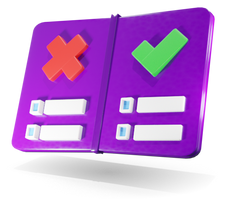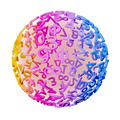11th Grade Q1
A proposition is a statement that is either true or false, but not both. It must have a definite truth value. Propositions are the building blocks of logic and mathematics.
Example 1
A simple example is the statement:
- "It is raining."
This statement is a proposition because it can be either true or false, depending on the weather.
If we let represent this proposition, we can write:
Example 2
In mathematics, a proposition can be a statement like:
- "The number 5 is greater than 3."
This is also a proposition because it is either true or false. In this case, it is true.
If we let represent this proposition, we can write:
Propositions are fundamental in logic, as they allow you to construct more complex statements and reason about their truth values.
Not a proposition
A statement that is not a proposition is something that cannot be clearly labeled as true or false. For example:
- Questions are not propositions.
Example: "What is your favorite number?"
You can’t say this is true or false—it’s just a question. - Commands are not propositions.
Example: "Solve this equation."
This isn’t true or false either—it’s an instruction. - Statements with unclear meaning are not propositions.
Example: "This statement is false."
If you think about it, this creates a paradox. If it’s true, then it’s false, and if it’s false, then it’s true. It doesn’t work as a proposition.





















